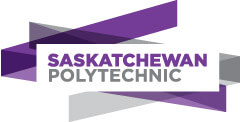About Heavy Equipment And Truck And Transport Technician Certificate in Saskatchewan Polytechnic
Program Overview
The Heavy Equipment and Truck and Transport Technician program at Saskatchewan Polytechnic gives you basic training in two high-demand mechanical trades at once. Heavy duty equipment technicians work on large mobile equipment—bulldozers, cranes, graders, loaders and earthmovers used in construction, mining, forestry and more. Truck and transport mechanics work on trucks, buses and highway transport vehicles for dealers, garages and transportation companies.
Heavy Equipment and Truck and Transport Technician is a one-year certificate program offered in Saskatoon. Build the knowledge and skills you need to service, maintain, diagnose and repair heavy equipment, trucks, buses and transport vehicles. You’ll get training in:
- air conditioning and heating systems
- brake, steering and suspension systems
- electrical and hydraulic systems
- engines, fuel systems and power trains
- equipment operation and maintenance
- trade math and blueprint reading
- use of shop equipment and tools
- welding
60% Shop Time, 40% Class Time
You’ll learn from highly qualified instructors in Saskatchewan Polytechnic’s well-equipped heavy equipment shop facility at 135 English Crescent in Saskatoon. The industry is a big supporter of our students, which means you’ll learn on advanced equipment. You’ll also participate in an industry-based two-week work experience.
Apprenticeship Credit
With this Saskatchewan Polytechnic credential, you may be eligible for credit towards apprenticeship training. To learn more, contact the Saskatchewan Apprenticeship and Trade Certification Commission (SATCC).
Career and Salary Information
Your Career
Saskatchewan Polytechnic graduates are in demand. When you graduate, you’ll have the knowledge and skills you need to sell, operate, maintain and repair heavy equipment, trucks, buses and transport vehicles. Start your career in an equipment dealership, transportation company, public transit operation, service and rental company. There are also hands-on jobs in construction, forestry, mining and oil and gas industries, as well as opportunities to move into sales, marketing and management. You could also open your own business.
Academic qualification equivalents:
- Secondary School Diploma or equivalent, include one English, Grade 12 (ENG4C or ENG4U), minimum 60%
English language requirements (one of the below):
- IELTS : Overall minimum score of Band 6.5 with a minimum score of 5.0 in each component.
- TOEFL : An overall minimum score of 81 on the Internet-based Test of English
- PTE : A minimum score of 63 with minimum component scores of 50.
Saskatchewan Polytechnic Highlights
| Type |
Public |
| Campus Setting |
Urban |
| Application mode |
Online and Paper mode available |
| Graduation rate |
62% |
| Acceptance rate |
96% |
| Number of Students |
16,008 |
| Overall cost of living |
14,762 CAD |
| Academic calendar |
Semester based |
| % of International students |
6% |
| Number of campuses |
4 |
| Medium of instructions |
English |
| Undergraduate Tuition fee |
14,044 CAD |
| Postgraduate Tuition fee |
16,426 CAD |
| Cost of living |
694 -1147 CAD per month |
Saskatchewan Polytechnic First-Year Tuition Fees And Living Expenses For International Students
Over the course of one academic year, the following graph displays tuition and living expense estimates in Canadian currency for one full-time international undergraduate student. Please bear in mind that these are only estimates; actual pricing will vary depending on your needs and preferences. Other factors to consider include currency changes, visa and study authorization fees, and vacations back home.
- For international students, the overall fees will range from:-
| Particulars |
Amount |
| Administrative fees |
50.00 to 150.00 CAD |
| Application fees |
150 CAD |
| Student association fee |
95.00 to 445.00 CAD |
| Non-refundable fee at the start) |
1,000 CAD |
| Tuition fee range |
6,195 to 18,089 CAD |
| Laboratory fee |
100.00 to 409.00 CAD with no fees for
some courses which do not have a lab service. |
| Books and Supplies |
200 to 3,725 CAD |
| Technology fee |
50 to 146 CAD |
- For a student of Saskatchewan Polytechnic the required financials (Cost of Attendance) can be:-
| Description of Financials |
Amount in CAD |
| Average cost of tuition |
11245.77 CAD |
| Cost of living |
10799.39 CAD |
| Application fee |
150 CAD |
| Estimated total (per year) |
22,195.16 CAD |

